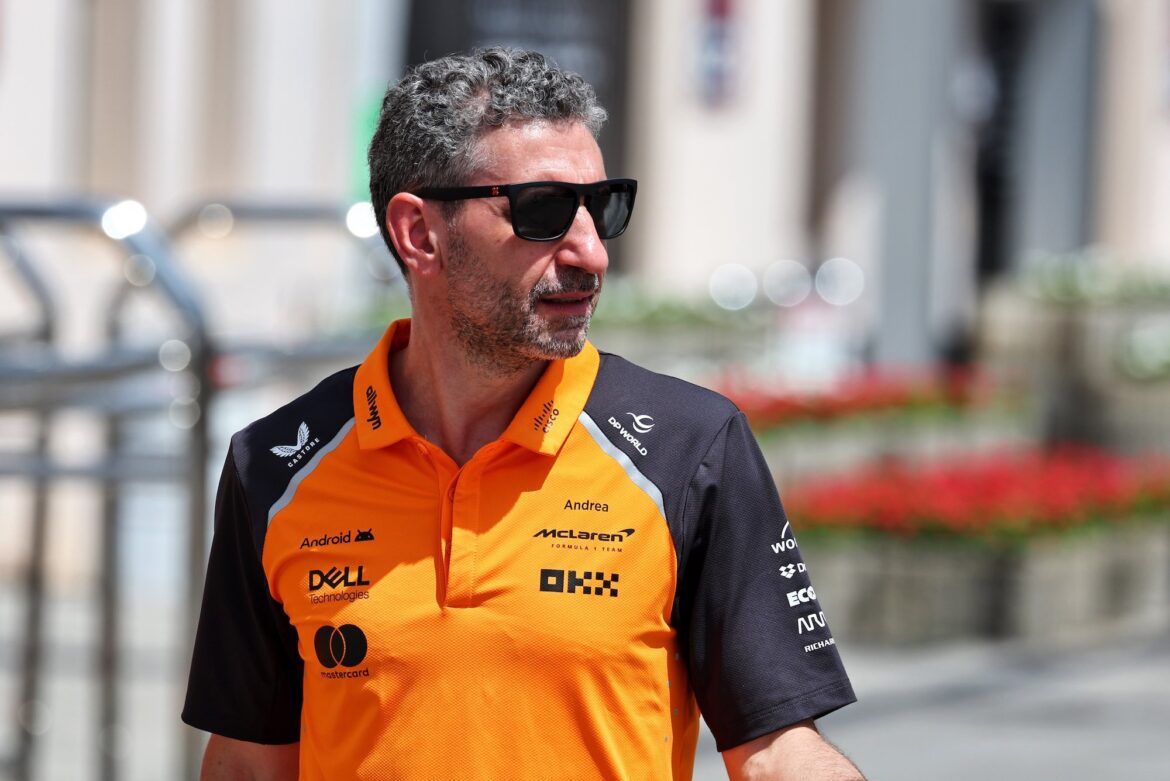McLaren’s Response to the Incident at the Canadian Grand Prix
The recent incident involving McLaren at the Canadian Grand Prix has sparked discussions within the team and the broader Formula 1 community. Andrea Stella, who is pivotal in McLaren’s operations, addressed the situation, emphasizing that the team will conduct an internal review. He expressed confidence that they would emerge from this experience even more resilient.
Understanding the Incident
During the race in Montreal, Lando Norris found himself in a challenging situation. While competing for position against his teammate Oscar Piastri, he lost control of his car and collided with the protective wall. This unfortunate mishap caused significant damage to his vehicle, resulting in a critical zero score for him in the championship standings, which also affected the team’s performance in the constructors’ championship.
Stella acknowledged the incident’s impact but remained optimistic about the potential for learning and growth from such experiences. He indicated that the team would engage in discussions to analyze what transpired, with the intent of reinforcing safety measures and improving team dynamics.
The Importance of Internal Review
In the wake of the crash, McLaren recognizes the necessity of a thorough internal review. Stella highlighted that while these types of incidents can be disheartening, they also present an opportunity to reinforce the principles that guide the team. It’s crucial to ensure that both drivers maintain a level of caution when racing against each other, especially in high-stakes scenarios.
Stella elaborated on the need for clear communication and expectations between the drivers. He pointed out that while competition is inherent in racing, the team must establish parameters to minimize risks associated with on-track interactions. "If we assert that there should not be contact between our two drivers, we must also provide the necessary framework to prevent such incidents," he stated.
Learning from Mistakes
Mistakes are an inevitable part of any high-performance sport, including Formula 1. Stella believes that the essence of being a successful driver lies in the ability to process these incidents constructively. “In the heat of the moment, it can feel like the worst disaster ever,” he acknowledged. However, he emphasized the importance of a strong team culture that encourages learning and adaptation.
The culture within McLaren is designed to foster resilience and growth. Stella articulated that the team would absorb valuable lessons from this experience, discarding any negative aspects that do not contribute to their future performance. This mindset is crucial for both the drivers and the entire McLaren team as they strive to achieve their goals.
Strengthening Team Dynamics
As part of their strategy moving forward, Stella indicated that the team would engage in open conversations with both Norris and Piastri. It’s essential to ensure that all members of the team, not just the drivers, understand the importance of communication and collaboration on the track. By addressing the incident in a constructive manner, McLaren aims to strengthen their overall team dynamics.
The discussions will focus not only on what went wrong but also on how the team can improve its performance collectively. Stella believes that by utilizing these moments of reflection, the McLaren team can emerge more united and equipped to tackle future challenges.
Building a Stronger Future
Stella’s optimism about the team’s ability to learn from this incident is evident. He believes that the strength of McLaren lies in its culture, which prioritizes learning and growth. By processing the events that transpired in Montreal, the team can emerge more robust, with both drivers better prepared for the challenges ahead.
Furthermore, the commitment to enhancing communication and understanding among team members is vital. Stella emphasized that these discussions will not only be beneficial for the drivers but for the entire team. The more cohesive and aligned the team is, the better equipped they will be to navigate the complexities of Formula 1 racing.
Emphasizing Caution and Strategy
One of the key takeaways from the incident is the need for caution on the part of the drivers, especially in competitive situations. Stella reiterated that while racing is inherently competitive, there is a fine line between aggression and recklessness. He highlighted the importance of strategic thinking during races, particularly when drivers are vying for position against their teammates.
The implementation of clear strategies and guidelines for on-track behavior can significantly reduce the likelihood of similar incidents in the future. By fostering an environment where drivers are encouraged to communicate and collaborate, McLaren can create a safer and more effective racing atmosphere.
The Role of Team Culture
Stella’s comments underscore the significance of team culture in high-pressure environments like Formula 1. A strong culture that promotes learning, accountability, and mutual respect can lead to improved performance on and off the track. McLaren’s commitment to maintaining a positive culture will play a pivotal role in their future success.
By leveraging past experiences, the team can create a framework that not only addresses mistakes but also promotes continuous improvement. This approach will ensure that McLaren remains competitive in the ever-evolving landscape of Formula 1.
Conclusion
In light of the recent incident at the Canadian Grand Prix, McLaren is taking proactive steps to ensure that they learn and grow from the experience. Through internal reviews, open discussions, and a commitment to fostering a strong team culture, McLaren aims to emerge from this challenge stronger and more united. The focus on caution, communication, and collaboration will be essential as they move forward in the competitive world of Formula 1.
